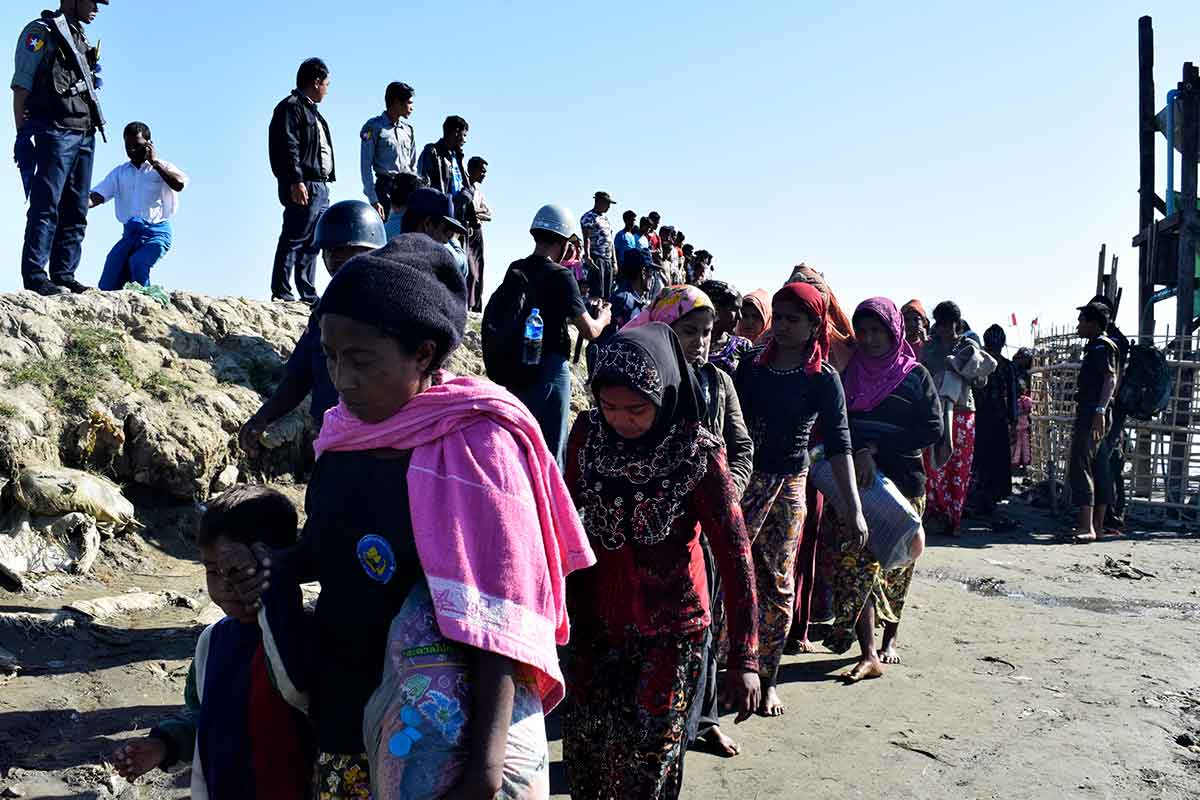The world’s eyes are fixated on Myanmar. Numerous online petitions have been set up among the international community to voice concerns for the Rohingya Muslims. At the same time, there are also online campaigns being run by people in Myanmar speaking out against the international media’s reports about the situation in Rakhine state.
Just recently, Rohingya activists slammed Muslim-majority countries, claiming they continue to prioritise economic interests over the rights and lives of the Rohingya Muslim minority who are facing an alleged ongoing genocide in Myanmar.
Speaking on the side-lines of a historic international conference at the Barnard College in New York, the activists were responding to the latest round of Saudi deportations of Rohingya refugees, saying leaders of Muslim-majority countries had not demonstrated a political will to help put a stop to the alleged persecution.
Apart from the Rohingya crisis, Myanmar has also gained international infamy because of its treatment of two Reuters journalists. The two were working on a story about the killing of 10 Rohingya Muslim men and boys in western Myanmar’s Rakhine state when they were arrested.
Despite possibly sullying its reputation further in the eyes of the world, Myanmar persists in its human rights violations. Why?
In an interview with CNN, Aaron Connelly, a research fellow at the East Asia Program at the Lowy Institute in Sydney, said the military junta in Myanmar still controls the security forces, the police and key cabinet positions in the government.
“Under the Constitution the commander-in-chief (of Myanmar's Armed Forces) is his own boss, he doesn't report to (Myanmar State Counsellor) Aung San Suu Kyi. He can't be fired. If the military has to choose between control and international respect, they will choose control,” he explained.
Adding on to the commander-in-chief’s powers, the country’s current constitution which was enacted in 2008 after the military gave up some control says that a quarter of the seats in parliament must be allocated to the military. This complicates matters further as in order for the parliament in Myanmar to pass a bill as law, it requires a 75 percent majority vote.
If the military has the last say, and its priority is control then the people of Myanmar can currently do little from within their borders. One would think that the international world would then step in by ensuring Myanmar faces repercussions if it does not respect human rights. Unfortunately, it’s no longer that simple.
![]()
Source: Various sources
A friend in China
The challenge to hold Myanmar accountable for its human rights violations is further muddied by the ongoing US-China trade war and Myanmar’s strategic location next to the world’s second largest economy. In fact, according to the country’s official statistics, the main foreign investor in Myanmar is China.
China has been investing in Myanmar for its natural resources for a long time now. Before 2011, China planned to sink US$3.5 billion into constructing one of the largest hydroelectric dams in the world to produce electricity primarily for its cities over the border in Yunnan Province, with only about 10 percent of the energy generated going to Myanmar.
Today, China has taken a softer approach towards the country. In February, a model project for rural poverty reduction with financial and technical assistance from China was launched in the townships of Lewe and Tatkon in Nay Pyi Taw. China provided US$5.3 million in funds for the project, which includes social infrastructure development, vocational training, income-generation and capacity-building assistance for residents.
Earlier, in September 2017, Hong Liang, China's ambassador to Myanmar, donated 200 million Kyat (about US$150,000) on behalf of the Chinese government to Myanmar's Ministry of Social Welfare, Relief and Resettlement for Rakhine State.
The United States (US) Department of State revealed that the US has been providing millions of dollars to Myanmar in financial aid for a long time. Included in this aid was US$47 million in additional humanitarian assistance, bringing the US’ contribution to the Rakhine State crisis in Myanmar and Bangladesh to more than US$87 million since August 2017. The US’ total humanitarian assistance for displaced people in and from Myanmar amounts to nearly US$151 million since the start of the 2017 financial year.
The US has also provided over US$68 million to Myanmar since 2013 to strengthen democratic processes, including US$18 million for the country’s 2015 elections and over US$11 million to build democratic justice and civilian law enforcement.
Because of the ongoing US-China trade war, the US cannot afford to cease aid to Myanmar or do more as it may push the military-led government there into the waiting arms of China. On the other hand, China does not want to be seen as interfering in Myanmar’s domestic issues as it wants its Belt and Road Initiative (BRI) projects there to run smoothly without delays. China is also wary of its own poor human rights record as well and would not want to attract attention to it. This then leaves human rights in Myanmar in a precarious position. If the international community cannot do more, then it may be up to the people of Myanmar to carry the torch and champion the cause themselves.
This article was first published by The ASEAN Post on 7 September 2018 and has been updated to reflect the latest data.
Related articles:
Myanmar crisis getting out of hand
Where is Myanmar's press freedom?
